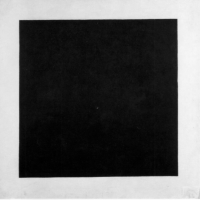Loopy Pro: Create music, your way.
What is Loopy Pro? — Loopy Pro is a powerful, flexible, and intuitive live looper, sampler, clip launcher and DAW for iPhone and iPad. At its core, it allows you to record and layer sounds in real-time to create complex musical arrangements. But it doesn’t stop there—Loopy Pro offers advanced tools to customize your workflow, build dynamic performance setups, and create a seamless connection between instruments, effects, and external gear.
Use it for live looping, sequencing, arranging, mixing, and much more. Whether you're a live performer, a producer, or just experimenting with sound, Loopy Pro helps you take control of your creative process.
Download on the App StoreLoopy Pro is your all-in-one musical toolkit. Try it for free today.
Google MusicLM: Generating Music From Text
Just some examples available so far (no ChatGPT-like interface).



Comments
I can definitely see myself using MusicLM as a starting-off point for my own productions, like AI-produced presets. I like the melodies, beats, and such...but most of these tracks lack the "special sauce and spices" I can personally add to a track.
Need that interface…
Cool stuff. I think no one should feel threatened by that. Well, maybe composers for elevator music and the like. From an artist perspective this ML (I much prefer ML over AI, as it is more precise) can only come up with new pieces of music in a way that humans already have developed. It could not develop a new style on its own. A real AI maybe could. Anyway, this will provide a great tool for musicians to access the know-how for musical styles.
I'm agreeing with all of your comments (particularly the death metal accordion haha).
For me what is wrong with MusicLM is that it is directly synthesising audio. This is really noticeable in the singing. AFAICT singing is being synthesised directly from random phonemes (more or less, the units aren't really phonemes but the sample resolution may be sufficiently short that it is an interesting approximation).
It would make more sense (for most of us) to get a synthesised DAW project instead, mostly with notes (MIDI) rather than audio.
And for singing, they could first have ChatGPT write a text (based on a user-supplied prompt), and then have a separate text-to-singing-voice sing it, and put it as samples into the DAW project.
I think there might be a demand for this sort of thing. I wonder if any of the DAW makers are working on this?
Anyone else having problems getting any of the media on that page to load? Nothing worked for me.
Update: Switched to the Brave browser and then it played everything with no problems.
Of particular interest to me is the section they call "Text and Melody Conditioning". This is an astounding function that DAW and app developers should consider integrating. Imagine whistling or humming a line or a chorus and then having the system fill in the details for you. This could seriously revolutionize music production.
I agree, there seem to be a number of interfaces that can sort of do this (Ableton melody to midi for instance), but this does seem to go further. Could be fun to use live too (here the MusicLM synthesis of audio would be better than synthesis of MIDI IMO).
Type.
A song made before humans invented instruments.
True, perhaps more for quick projects or dabbling than mastery. OTOH, could save you a lot of repetition of the same stuff if you can quickly describe your starting point in a text prompt. I think many of us do a lot of boring stuff in DAWs first in order to setup for the musically great stuff only we can add.
If you're capable of whistling or humming a tune, learning how to turn it into a commercially viable product by learning how to play, record and engineer all of it is all just an academic exercise at that point. And if you already know how to do all of that, but would rather spend more time on generating songs, this is a godsend. This is nothing more than another tool to be used.
is there a way to use this yet?
Underwhelmed listening to the examples posted. Think you could pretty easily make a reasonable guess at reverse engineering a lot of the rules the algorithm is using. Seems to look for specific keywords and change one or more parameters e.g. computer game = 8 bit Mario patch etc. I'm sure it's way more complex than that but it doesn't sound it!
Don't look at what is available right now. Extrapolate this into a product (or many competing products) in a year or two. Competition among developers will make these tools indispensable.